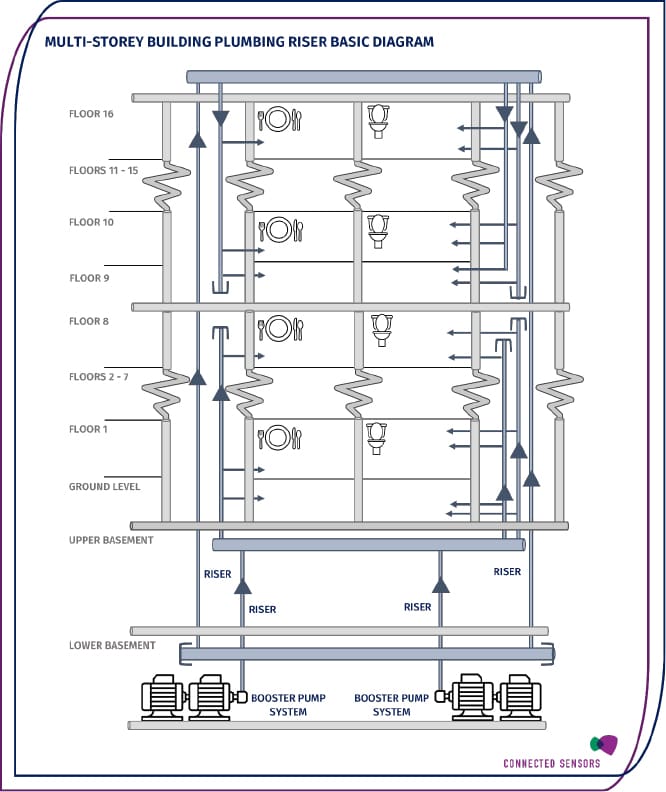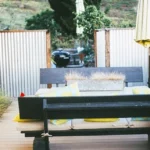Living in an apartment offers many conveniences, but understanding how essential utilities like water work is crucial for a smooth living experience. Unlike single-family homes where plumbing systems are independent, apartments typically share a common water supply network. This interconnected system delivers both hot and cold water to individual units through a complex web of pipes running throughout the building.
This article will delve into the intricacies of apartment water systems, exploring how they function, the shared nature of the supply, and your role in maintaining a healthy and efficient system. We’ll also discuss potential issues that can arise within these shared networks and how to address them effectively.
Apartment Water Systems
Apartment buildings rely on sophisticated plumbing systems designed to efficiently distribute water to numerous units. These systems typically consist of several key components:
- Main Water Supply: The building receives its primary water supply from the municipal water system through a large main pipe. This pipe branches out into smaller lines that serve different sections of the building.
- Water Meter: A water meter installed at the building’s entrance measures the total amount of water consumed by all residents.
Distribution Pipes: These pipes branch off from the main supply and carry water to individual floors and units within the building. Hot and cold water lines are typically separate but run parallel to each other.
Fixtures: Each apartment unit has various plumbing fixtures, such as sinks, toilets, showers, and bathtubs, connected to the distribution pipes. These fixtures allow residents to access and use water for their daily needs.
Shared Water Supply
One of the most important aspects of apartment living is understanding that you share a common water supply with your neighbors. This means that your water usage directly impacts the availability of water for other residents in the building.
When one resident uses a significant amount of water, it can temporarily reduce the pressure or flow rate for others. This shared system also means that any leaks or blockages within the pipes can affect multiple units simultaneously. It’s essential to be mindful of your water consumption and report any issues promptly to avoid inconveniencing fellow residents.
Plumbing Connections
While you may not have direct access to the main plumbing lines, understanding how your apartment is connected to the shared system is important. Each unit typically has its own set of internal plumbing pipes that connect to the building’s distribution network. These connections are usually located in a utility closet or near the water heater.
It’s crucial to avoid tampering with these connections as they require specialized knowledge and tools to work on safely. If you encounter any plumbing problems within your unit, it’s best to contact your landlord or a qualified plumber for assistance.
Water Usage Responsibility
As an apartment resident, you share the responsibility of maintaining a sustainable and efficient water system. Here are some ways to minimize your water usage:
- Fix Leaks Promptly: Even small leaks can waste significant amounts of water over time. Check faucets, showerheads, and toilets regularly for drips and repair them immediately.
- Be Mindful of Shower Time: Limit your showers to 5-10 minutes to conserve water. Consider installing a low-flow showerhead to further reduce consumption.
Turn Off the Tap: Don’t leave the water running while brushing your teeth, washing dishes, or shaving. Turn off the tap when you’re not actively using it.
Choose Water-Efficient Appliances: When replacing appliances, opt for models with high water efficiency ratings to minimize water usage over their lifespan.
Potential Issues
While apartment water systems are designed to be reliable, several potential issues can arise:
Leaks and Blockages
Leaks in pipes or fixtures can lead to water damage, wasted water, and increased utility bills. Blockages in drains can also cause backups and overflow, creating unsanitary conditions.
Low Water Pressure
Insufficient water pressure can result from various factors, including clogged pipes, faulty valves, or problems with the building’s main water supply. This can make it difficult to use appliances effectively or take showers.
Corrosion
Over time, corrosion can occur within the plumbing system, leading to leaks, reduced water flow, and potential contamination of the water supply. Regular maintenance and inspections can help identify and address corrosion issues before they become major problems.
Conclusion
Understanding how is water connected in apartments is essential for apartment living. By grasping the shared nature of the water supply, your role in responsible water usage, and potential issues that may arise, you can contribute to a more efficient and sustainable living environment for yourself and your fellow residents. Remember to be mindful of your water consumption, report any leaks or problems promptly, and work with your landlord to ensure the proper maintenance of the building’s plumbing system.



